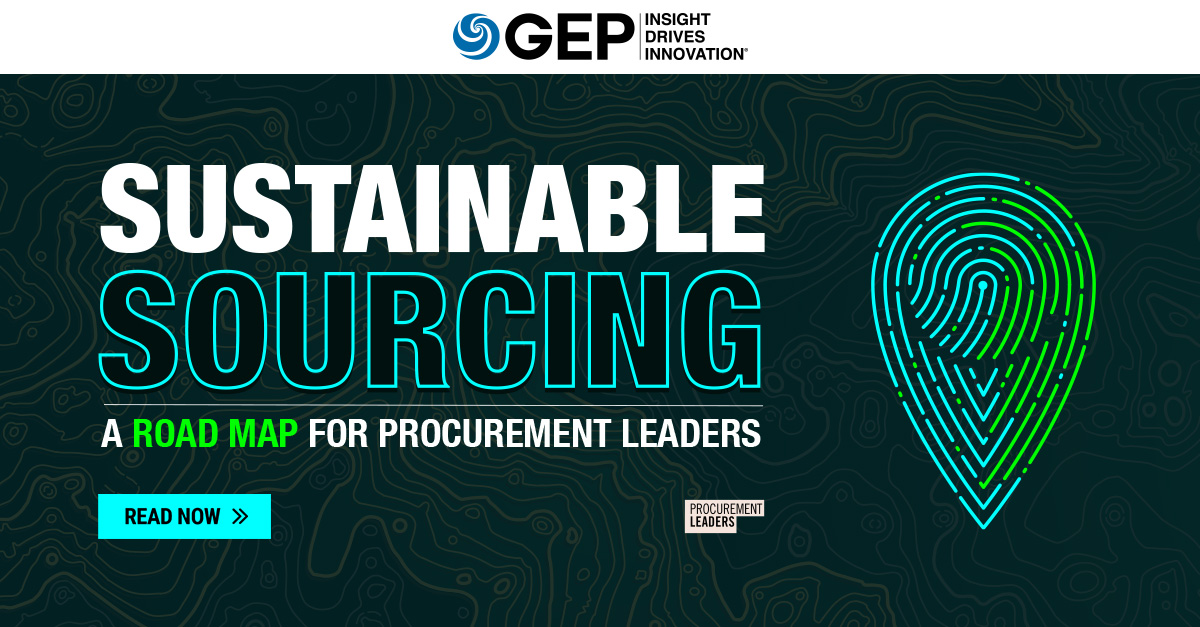Exploring the intersection of smart GEP and sustainable sourcing unveils a dynamic landscape where innovation meets environmental responsibility. This introduction sets the stage for a deep dive into how modern businesses can revolutionize their practices through smart solutions and eco-conscious strategies.
As we delve further, we will uncover the intricate connections between technology, efficiency, and sustainability in the realm of sourcing.
Smart GEP

Smart Green Energy Procurement (GEP) is a strategic approach that focuses on sourcing energy from sustainable and environmentally friendly sources. It plays a crucial role in promoting sustainability and reducing the carbon footprint of organizations. Smart GEP integrates technology and data analytics to optimize energy procurement processes and make informed decisions that benefit both the environment and the bottom line.
Streamlining Supply Chain Processes
Smart GEP streamlines supply chain processes by leveraging data analytics and automation to enhance visibility and efficiency. By monitoring energy consumption patterns in real-time, organizations can identify areas for improvement and implement strategies to optimize energy usage. This not only reduces waste but also ensures a more sustainable and cost-effective energy procurement process.Examples of technologies or tools used in Smart GEP include advanced energy management systems, IoT devices for monitoring energy consumption, and machine learning algorithms for predictive analytics.
These tools enable organizations to track their energy usage, identify trends, and make data-driven decisions to optimize energy procurement strategies.The impact of Smart GEP on cost reduction and efficiency in sourcing is significant. By optimizing energy procurement processes, organizations can reduce energy costs, minimize waste, and improve overall operational efficiency.
Smart GEP also helps companies meet sustainability goals and regulatory requirements, enhancing their reputation and competitiveness in the market.
Sustainable sourcing

Sustainable sourcing refers to the practice of procuring goods and services in a way that takes into account the social, environmental, and economic impacts throughout the entire supply chain. It involves making conscious decisions to minimize negative effects on the environment and society while supporting ethical business practices.
In modern business practices, sustainable sourcing has become increasingly important as consumers and stakeholders demand transparency and accountability from companies.
Comparison of traditional vs. sustainable sourcing
Traditional sourcing methods often prioritize cost-effectiveness and efficiency without considering the long-term consequences on the environment and society. In contrast, sustainable sourcing approaches focus on ethical considerations, such as fair labor practices, reducing carbon footprint, and supporting local communities. By adopting sustainable sourcing practices, companies can build stronger relationships with suppliers, mitigate risks, and enhance their reputation in the market.
Key factors for implementing sustainable sourcing strategies
- Supplier transparency and accountability
- Ethical labor practices
- Environmental impact assessment
- Community engagement and support
- Continuous improvement and innovation
Benefits of sustainable sourcing
- Enhanced brand reputation and customer loyalty
- Risk mitigation and supply chain resilience
- Cost savings through resource efficiency
- Compliance with regulatory standards and certifications
- Positive impact on local communities and ecosystems
Integration of Smart GEP in sustainable sourcing
Smart Green Energy Procurement (GEP) plays a crucial role in enhancing sustainability practices in sourcing. By integrating Smart GEP strategies, businesses can not only reduce their environmental footprint but also improve efficiency and cost-effectiveness in their sourcing processes.
Successful Integration Examples
- Implementing renewable energy sources in the supply chain to reduce carbon emissions.
- Utilizing data analytics to optimize energy usage and minimize waste in sourcing operations.
- Collaborating with suppliers who adhere to sustainable practices and ethical standards.
Challenges Faced
- Initial investment costs for transitioning to sustainable sourcing practices.
- Lack of awareness and expertise in implementing Smart GEP strategies.
- Resistance from traditional suppliers to adopt sustainable sourcing methods.
Potential Long-term Benefits
- Reduction in operational costs through energy efficiency and waste minimization.
- Enhanced brand reputation and consumer trust due to commitment to sustainability.
- Resilience to regulatory changes and market fluctuations by aligning with sustainable practices.
Summary

In conclusion, the fusion of smart GEP with sustainable sourcing not only propels businesses towards cost-effective and efficient practices but also paves the way for a greener, more sustainable future. By embracing these methodologies, companies can lead the charge in creating a better world for generations to come.
Question & Answer Hub
What is Smart GEP?
Smart GEP stands for Smart Green Eco-Procurement, which focuses on environmentally friendly procurement practices to enhance sustainability in sourcing.
How does sustainable sourcing differ from traditional methods?
Sustainable sourcing prioritizes eco-friendly practices and ethical considerations, unlike traditional methods that may focus solely on cost and convenience.
What challenges are commonly faced when integrating Smart GEP in sustainable sourcing?
Some challenges include initial implementation costs, resistance to change from traditional practices, and ensuring the compatibility of technology with existing systems.
What are the long-term benefits of combining Smart GEP with sustainable sourcing practices?
Long-term benefits include reduced environmental impact, enhanced brand reputation, cost savings through efficiency, and increased resilience in supply chain management.